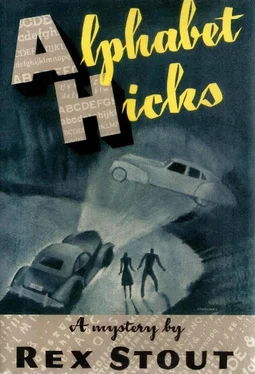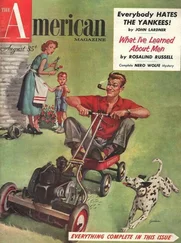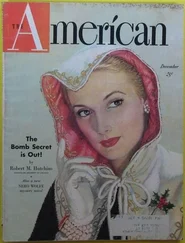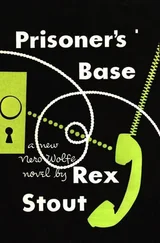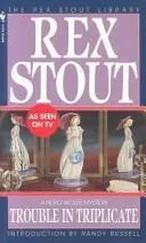“He’s not here,” Heather said.
“He was here,” Brager said complainingly. “In that chair!” He pointed. “I wonder if he—” He trotted to the door leading to the laboratory and disappeared within. Heather jumped when one of the sheets of paper, caught in an eddy from the window, flapped against her ankle. She gathered up the sheets, returned them to the basket, and put a weight on them.
Brager came back. “Not there!” he said angrily. “Not anywhere!” He faced Heather as if she had subjected him to a personal affront. “I tell you this is finally too much! Where is he?”
Heather was going to laugh. She knew she was going to, and she knew she must not. All day she had not cried, and now she was going to laugh, because the sight of Brager being mad at her on account of George not being there was irresistibly funny. She set her teeth on her lip.
“It is outrageous!” Brager insisted. “Outrageous! It is at last too much! He sat in that chair and said he must speak to you! Did I telephone? No! I would not telephone because I thought someone might hear! I leave him here and I go after you! Because I thought he was unhappy! Because—”
He stopped because the air exploded. Cracking, shattering the air, came the sound of a gunshot.
The two thoughts — if such cerebral lightning flashes can be called thoughts — that came to Heather as she stood frozen for a fraction of a second, were, first, that she had been shot, and, second, that Brager had shot her. Both betrayed the state of her nerves. The first was not repugnant to reason, since people have been known to remain upright after being pierced by a bullet; but the second was manifestly absurd. Brager was frozen as stiff as she was. She looked down at herself...
“That was a gun,” Brager said. “Outside.”
“Yes,” she agreed.
“Shooting a pheasant again.” Brager crossed to a window and peered through the screen; then he crossed back, to the door, and went out. After a moment’s hesitation Heather followed. Brager had disappeared around the corner of the building; she descended the steps and walked to the corner. Rounding it, and seeing Brager, she stopped, and stopped breathing. Then, without breathing, she ran the ten paces to him, to where he was bending over the figure of a man lying on the ground close to the wall of the building. As she got there Brager straightened up. She saw the face of the man on the ground, and breathed, a convulsive gasp.
“Be quiet!” Brager said harshly. “I think I hear him.”
He was peering into the woods, which on that side were only a dozen yards from the building. Heather could hear nothing. She was staring at George Cooper’s face, wanting to look away but unable to. It was the most horribly repulsive thing she had ever seen, with the lips twisted into the grimace of an imbecile, and two flies, a small one and a large one, perched on the edge of a hole in the right temple only an inch away from the corner of the eye. It was the flies that made it unbearable. She clenched her teeth and stooped to chase them away, but by the time she was upright again one of them, the small one, was back.
“Here,” Brager said. He took off his coat and spread it over the grimacing face. “Can you stay here?”
She asked inanely, “Where are you going?”
“Inside to telephone.” He was trembling, and from his voice it was rage. “That is all I can do. I am not a brave man. I am not a resourceful man. This happens here by the wall of my laboratory, under my nose, I hear it, and all I can do is go inside to telephone. That is what men do nowadays when terrible things happen. They go inside to telephone. Bah!”
He went. When he came out again, minutes later, Heather was standing backed against the wall, her clenched fists at her sides, her eyes shut.
So when, around eight o’clock, Alphabet Hicks arrived, too late, the place was considerably more inhabited than he expected to find it. In the pleasant twilight, cars of sightseers and reporters were lined up on the grassy roadside in front, and at the entrance of the driveway a cluster of them, men and women and boys, were gathered around a tall and handsome state policeman on guard there. Hicks, seeing that from down the road, backed his car into the entrance of a pasture lane and got out and walked. His jaw was set and his chest was tight. He was thinking, “If he got that girl I’m a worm. No better than a worm. I should have taken her away...”
He asked the policeman at the entrance, “What’s going on?”
The policeman eyed him and demanded, “Who wants to know?”
“I do. The name is Hicks. If it’s a secret you can whisper in my ear.” There were titters. Hicks glanced around, picked a promising face, and asked it, “Between you and me, what’s up?”
“Murder,” the face said. “A man murdered.”
“What man?”
“A fellow named Cooper. The husband of that woman that was killed here yesterday.”
“Thanks.” Hicks started up the drive.
The policeman let out a squawk, and, when Hicks disregarded it and kept going, dived after him. But no real difficulty developed, because Hicks saw a man coming down the drive, stopped in his tracks, ignored the policeman who grabbed his arm, and beckoned to the approaching man, whose Palm Beach suit and battered Panama hat had surely not been removed, nor the hat even shifted, since the day before.
The man’s face did not light up with recognition as he caught sight of Hicks, but he said morosely, “Hello there.”
“Hello,” Hicks said. “Is this Adonis holding my arm your superior or your inferior?”
“Nobody knows. It’s a case of brawn and brains. If you’re a lover of peace, what the hell are you showing up here for?”
“Business. I came on an errand.”
“You know we’ve had another casualty?”
“I just heard about it.”
The man shook his head reproachfully. “It’s beyond me. Okay, come on, I’ll take you in to Corbett. Have you got another one of those cards? My sister wants one.”
Hicks got out a card as they crossed the lawn, and handed it over. On the front terrace, which was deserted, the man asked him to wait and started inside, but Hicks stopped him:
“If you don’t mind, what happened to Cooper?”
“Killed. Homicide.”
“I know. Drowned, suffocated, strangled, stabbed—”
“Shot.”
“Here?”
“Over at the laboratory.”
“Anybody charged?”
“I don’t know. That’s all I know. Nobody ever tells me anything. I get it on the radio when I go home.”
The man opened the door and disappeared. In a few minutes he emerged again and told Hicks, “Come on in. It looks like you’re welcome.”
District Attorney Corbett was installed again in the large and pleasant living room, at the big table with the reading lamp. Standing across the table from him was R. I. Dundee, and at one end of it a stenographer was seated. At the other end Manny Beck slouched in a chair. A policeman was just inside the door, and a man in plain clothes was in the background. When Hicks entered Corbett was speaking to Dundee in a tone of exasperation. That alone answered several questions for Hicks, knowing as he did that Corbett rarely addressed anyone old enough to vote in tones of exasperation, particularly a man of position and property like Dundee. Corbett was saying:
“Certainly you’re not under arrest. Certainly not! No one is under arrest! But under the circumstances I have a right to insist on your co-operation as a responsible citizen and ask you not to leave here without permission. It is a fact that neither you nor your son can furnish corroboration of your whereabouts at the time Cooper was killed. I didn’t say you are suspected of murder. And your remark about persecution of your wife is utterly unwarranted. Utterly!”
Читать дальше
